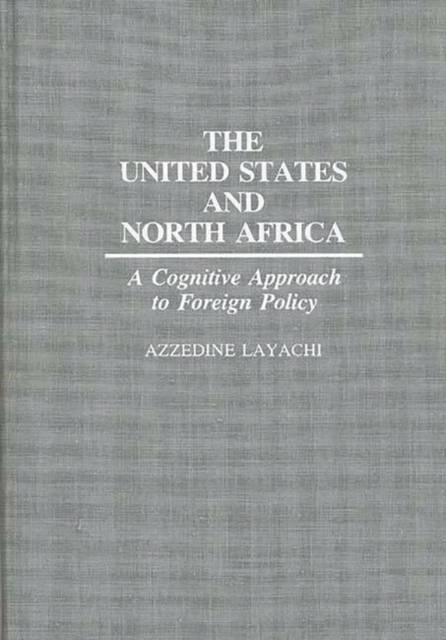
- Retrait gratuit dans votre magasin Club
- 7.000.000 titres dans notre catalogue
- Payer en toute sécurité
- Toujours un magasin près de chez vous
- Retrait gratuit dans votre magasin Club
- 7.000.000 titres dans notre catalogue
- Payer en toute sécurité
- Toujours un magasin près de chez vous
The United States and North Africa
A Cognitive Approach to Foreign Policy
Azzedine LayachiDescription
This book examines U.S. foreign policy decision-making and conduct from a psychological perspective that focuses on the structures as well as the content of mental images held collectively and individually by the foreign policy elite. Two case studies, arms sales to Morocco in the context of the Western Sahara war and liquefied natural gas contracts with Algeria, are used to illustrate the usefulness of this perspective. The methodological tool used is of Cognitive Mapping, which consists of reconstructing mental images relevant to the issues examined by way of a sophisticated method that dissects policy statements, breaks them down into concepts with causal linkages, and then feeds them into a computer program that uncovers important characteristics for each image. The author then makes interesting inferences linking these technical characteristics of cognitive maps, or images, to policy orientations and action.
The case studies analyzed with this method relate to U.S. foreign policy with regard to North Africa. The author tries to find answers to a set of empirical questions that have not often been addressed: Why have U.S. foreign policy makers ignored North African countries for so long in spite of their strategic location and natural resources? Why do radical images persist when there have been opportunities to negotiate rationally with the countries of that region? And why did the U.S. government reverse itself in 1979 when it decided to sell offensive weapons to Morocco in spite of U.S. and international restrictions, and in spite of some obvious potential negative effects of these sales on regional conflicts and on U.S. standing in the area? Also, why did the biggest economic deal the U.S. has ever had with a Third World country (Algeria) fail as soon as President Reagan came into office? These empirical questions are tackled along with theoretical concerns dealing with the subjective domain of foreign policy making. The framework used for the analysis of the historical data and the interviews conducted yielded interesting conclusions as to how foreign policy makers viewed the North African region, its countries, and the issues at stake. The methodology used explains, through simple graphs and indices of complexity and simplicity of mental structures, how situations were defined and responded to by various U.S. administrations. The results show how unconscious thought processes and specific categories of cognitive structures may affect the choice of a policy alternative, and demonstrate the role of images as intervening variables between the international environment and state behavior. This book should appeal to students and scholars of foreign policy, international relations, negotiations, and North African politics. Political scientists interested in computer modeling will also find in it interesting propositions.Spécifications
Parties prenantes
- Auteur(s) :
- Editeur:
Contenu
- Nombre de pages :
- 217
- Langue:
- Anglais
Caractéristiques
- EAN:
- 9780275933654
- Date de parution :
- 26-03-90
- Format:
- Livre relié
- Format numérique:
- Genaaid
- Dimensions :
- 156 mm x 234 mm
- Poids :
- 489 g







